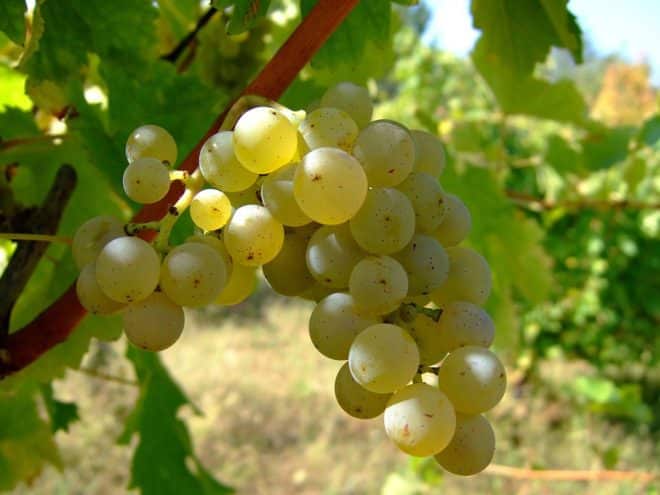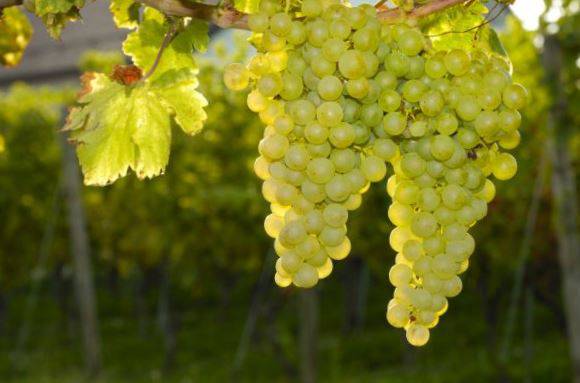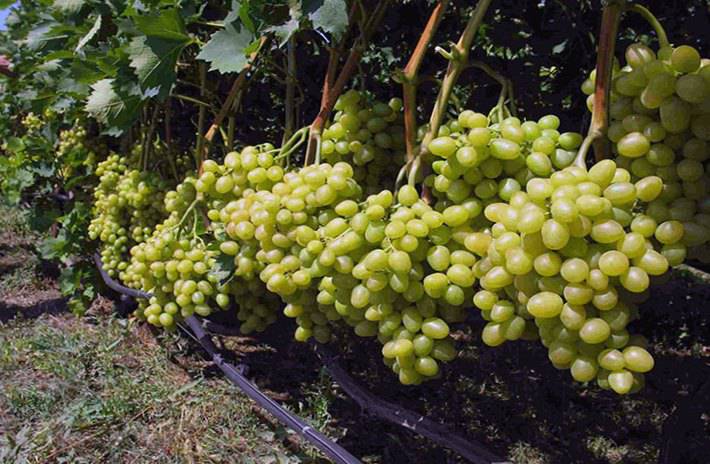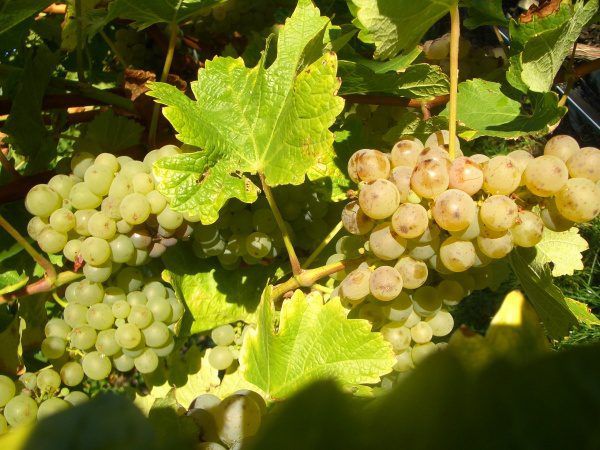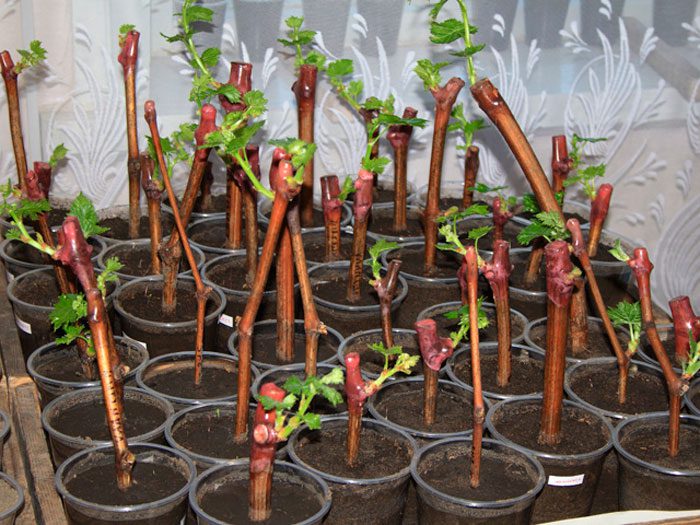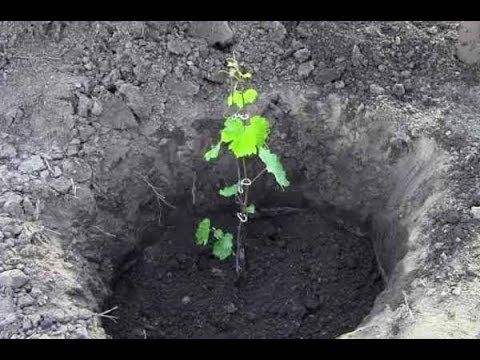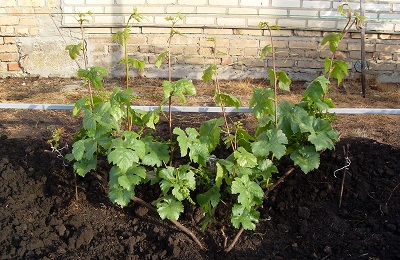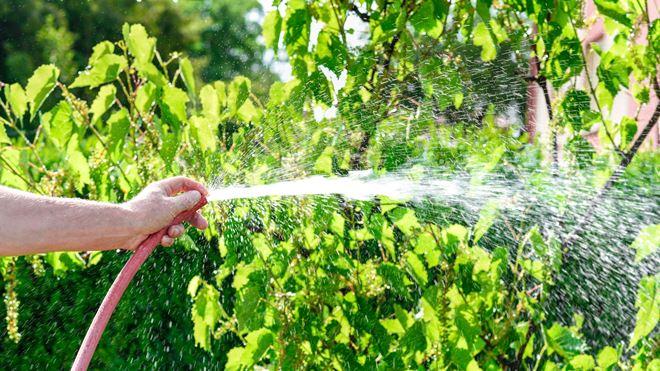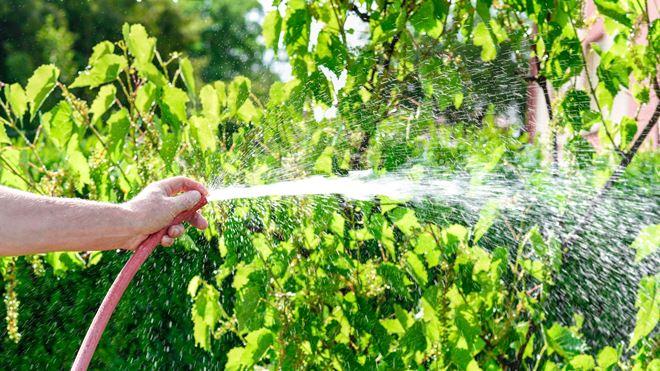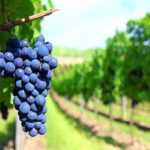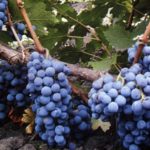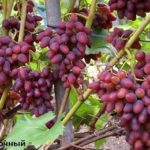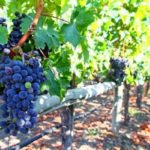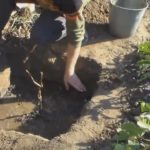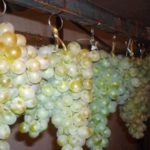Sauvignon grapes are characterized by a wide growing area: European countries, the countries of the American and Australian continents, the countries of South Africa and the Middle East. The main purpose of this variety is winemaking for table wines and enriching the taste in the production of wines from other grape varieties. It is also successfully grown in Russia.
- History of Sauvignon breeding
- Advantages and variety of types
- Technical characteristics of the variety
- Vine
- Bunch
- Ripening time and yield
- Climatic conditions for growing
- Methods of propagation of the variety
- Landing
- Tips for choosing seedlings
- Deadlines
- Layout and depth of the hole for planting
- Feeding the seedling
- Caring for young and mature vines
- Fertilizer
- Watering
- Formation
- Prevention from pests and diseases
- Harvesting, storage and processing
History of Sauvignon breeding
The variety’s homeland is France, its popularization is second only to Chardonnay grapes. The variety was obtained by natural crossing of the Tramner and Chenin Blanc varieties in the Loire Valley. In a short time from the middle of the 19th century, it spread to almost all continents of the world.
Advantages and variety of types
This variety without blending is used for the production of elite, expensive varieties of dry and semi-sweet wines, champagne, and grape juices; like any grape, it is delicious fresh. The exquisite taste of the variety varies depending on the ripeness of the berries, weather conditions during the ripening period, and soil composition.
Sauvignon Blanc is used to enrich the taste of white varieties of other wines.
Blanc means white in French. The berries of Sauvignon Blanc are light straw in color, the wines from this variety are light with a golden tint, it has related varieties obtained through natural changes: Sauvignon Gris (or Rose), Sauvignon Noir, Sauvignon Violet, which have similar properties and taste.
Technical characteristics of the variety
Sauvignon Blanc is a technical variety used for winemaking on an industrial scale. Technical characteristics include a description of the vine, grape bunch, ripening time, and yield of the variety.
Vine
A grape bush is formed by vines - these are shoots on which grape clusters are formed. Young shoots are reddish-brown in color; as they grow, they become green. Over the years, the vines thicken and become tree-like. The leaves are medium-sized, leathery, dense, strongly dissected into 3 or 5 parts.
Bunch
The grape berries are oblong, small in size, tightly collected in compact clusters, which have a cylindrical shape up to 15 centimeters long and up to 10 centimeters in diameter. Grape berries have 2-3 seeds, and the berries have a thick skin. The mass of the bunch reaches 130 grams.
Ripening time and yield
Sauvignon Blanc is a late ripening variety. Depending on weather conditions, harvesting is carried out in September-October. The yield of the variety is low, the plant requires proper care, suitable weather conditions during the summer and special soil. In grape nurseries, with proper care, up to 7,000 liters of wine are produced per hectare.
Climatic conditions for growing
Sauvignon Blanc prefers a cool climate and can withstand frosts down to -25 degrees. In Central Russia grapes are covered for the winter; Without shelter, the young shoots of the plant freeze, it is necessary to re-form the bush.
Methods of propagation of the variety
Grapes are propagated by biennial or annual, well-developed seedlings. In their absence, chibuki (annual shoots) are planted, which are harvested from a one-year-old or basal vine 40-50 centimeters long.
Landing
Grapes are a heat-loving plant that requires light. The place for growing the crop is chosen on the southern, southwestern and southeastern slopes. In amateur gardens, the most illuminated places are reserved for grapes. On flat areas, rows of grapes are planted from south to north, and on slopes - from east to west.
At planting grapes taking into account these requirements, it will receive more light and heat, grow quickly and produce a good harvest.
Tips for choosing seedlings
For planting grapes, select seedlings with a well-developed root system; the roots should be well branched, with a white core at the break, up to 10 centimeters long. It is better to choose rooted seedlings with a lump of earth. The vine should have from 5 to 10 buds. Rooted cuttings must meet the same requirements.
Deadlines
Planting of seedlings or rooted cuttings is carried out in April or May, when the air and soil warm up to 15 0C. These dates are adjusted depending on the regions, the timing of the onset of the spring season and its transience.
Layout and depth of the hole for planting
Sauvignon Blanc is a medium-growing variety; the distance between rows when planting should be 2 meters, and between bushes - 1.75 meters. When planting, it is necessary to take into account soil fertility, since this variety has powerful bushes. In case of poor soil, the distance between bushes is increased to 2 meters. To plant seedlings, dig square holes 0.5-0.7 meters deep and 0.5 meters wide. At a distance of 25 centimeters, a peg 0.6 meters long is driven in on both sides.
Feeding the seedling
To feed the seedling, 100 grams of potassium fertilizer, 400 grams of superphosphate, 150 grams of ash, and a bucket of humus are added to the hole; on heavy soils - 2 buckets of river sand, all dug up with soil. Seedlings are watered with Kornevin for better rooting.
Caring for young and mature vines
To obtain a stable harvest, it is necessary to properly care for the grapes. Care includes: fertilization, watering, weeding, bush formation, vine pruning, prevention from pests and diseases.
Fertilizer
Manure contains nitrogen, potassium, phosphorus and trace elements.Every 3 years it is applied at the rate of 6-8 kilograms per 1 square meter (in the fall before digging). Phosphorus and potassium fertilizers are used along with manure at the rate of 50-60 grams per 1 square meter. Potassium humate – universal fertilizer that stimulates plant growth and development; fertilizing is carried out according to the instructions. Nitrogen fertilizers are used annually in the spring at a rate of 3-4 grams per 1 square meter.
Watering
This variety does not like excess moisture; watering is carried out as the soil dries out. At a depth of 20 centimeters, take a handful of earth and squeeze it in your fist; if the earth crumbles without forming a lump, then watering is required. Excess water leads to rotting of the root system or the development of gray rot.
In the first year (dry summer), the grape bush is watered up to 4 times, 4 buckets of water per bush. After watering, the bush is mulched with humus 10 centimeters thick.
Formation
The formation of the bush begins in the first year of planting and is carried out annually. Fan and multi-sleeved fan-shaped grapes bushes suggest from 4 to 8 fruit sleeves extending from the base of the bush. Each has a fruit link - this is a fruit vine and a replacement knot.
Every year, vines that bear fruit are replaced with annual shoots. This work requires skills; you can clearly see the formation of a bush on the Internet.
Prevention from pests and diseases
Sauvignon Blanc is resistant to infection by mildew and oidium spores. During rainy seasons, it can become infected with gray mold spores. When the berries are infected, noble mold is formed, which gives the wine an exquisite taste; when the leaves become infected, work is carried out to collect and destroy them.
Among the pests, grape leaves are affected by mites, and the berries are eaten by wasps.For preventive purposes, it is enough to treat grapes with combined fungicides in the spring and after flowering. Special traps are installed for wasps.
Harvesting, storage and processing
Sauvignon has poor keeping quality, the berries are perishable, after a week they begin to rot. If you wish, you can quickly prepare juice at home and process grapes into wine. The taste and properties of the berries of this variety do not allow the use of wooden containers in wine preparation technology - glass bottles are used, the strength of the wine reaches 13 0. The taste of wine does not improve during storage; it is consumed in the first years of production. Wine can be stored in glass bottles for no more than 3 years.

